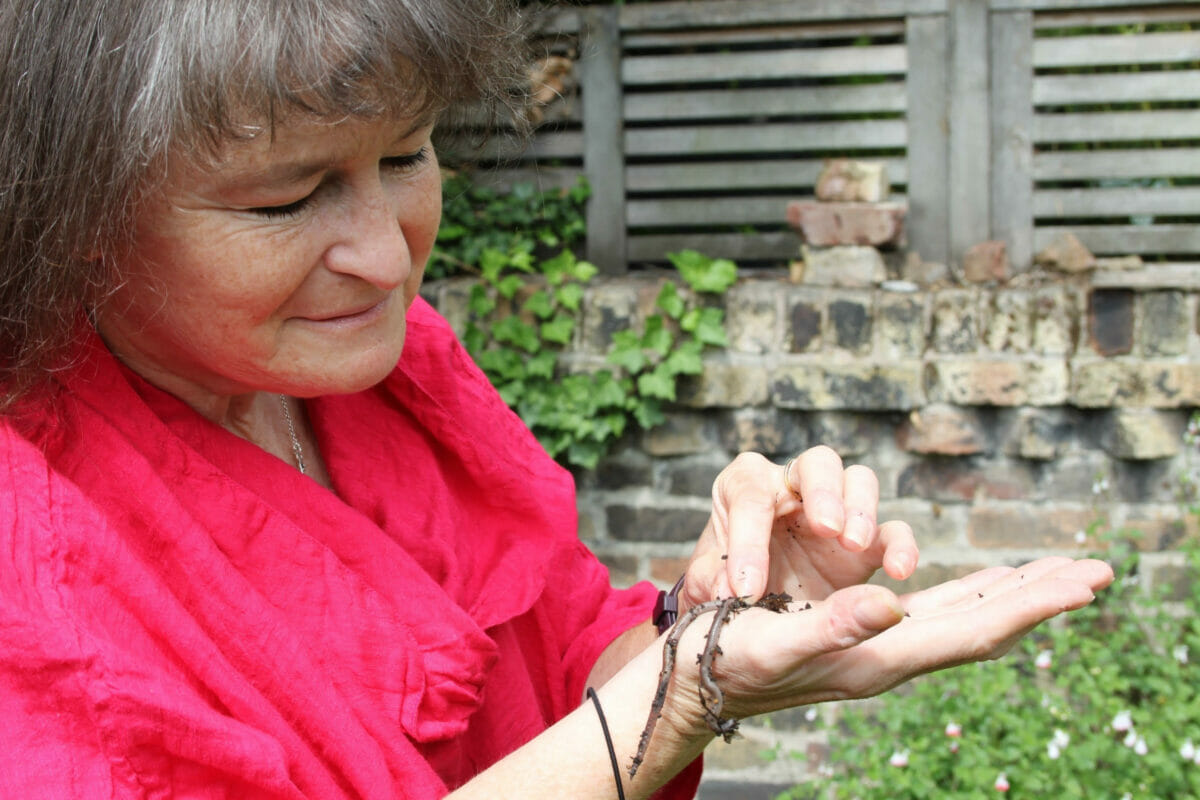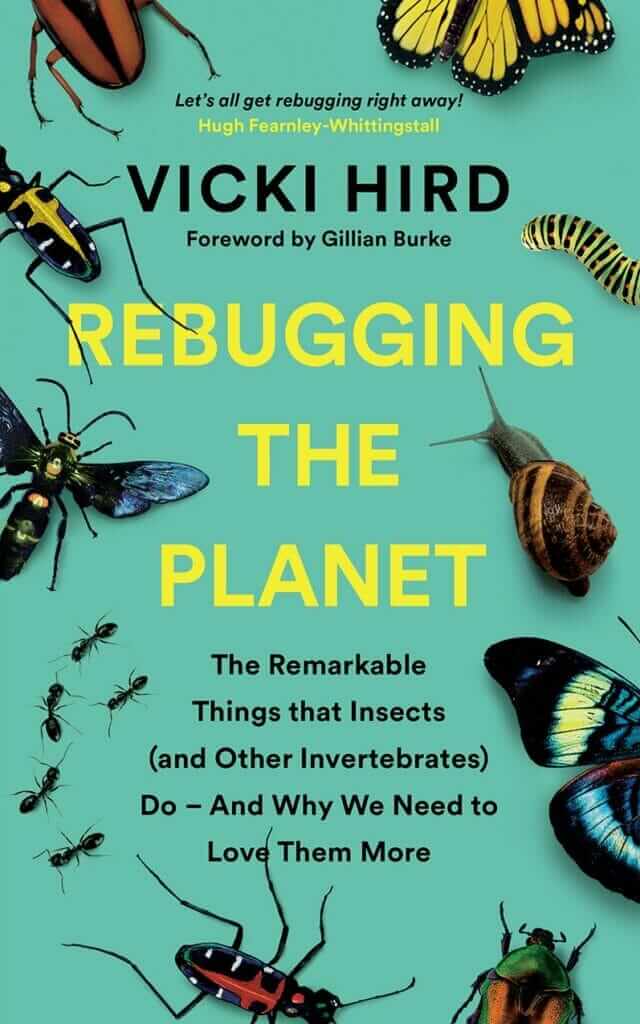One author is on a quest to help people rebug the environments around them.

Bugs often get a bad rap. According to one study, approximately 25 percent of people are scared of bugs. It’s estimated that nearly 40 percent of all phobias are related to bugs, insects and spiders—including arachnophobia, the irrational fear of spiders.
But there are plenty of reasons to love bugs, says author Vicki Hird. In her new book, Rebugging the Planet: The Remarkable Things that Insects (and Other Invertebrates) Do – And Why We Need to Love Them More, Hird argues that we shouldn’t just get past a fear of bugs (and in this case, she uses “bugs” as a catch-all term that includes insects, spiders and the like), but we should actively work to bring them in our spaces and help them multiply. The more bugs, the better, she says, because bugs have an enormous impact on our lives.
“Depending on who you talk to, 30 to 35 percent of our crops are pollinated by invertebrates and a few other species,” says Hird. “In order to feed ourselves with the diversity of food that we need to eat, particularly fruit and vegetables, but also critically cocoa and chocolate and coffee, we need bugs for seed dispersal, which is important in maintaining ecosystems and wildlife.”
Bugs aren’t just helping to pollinate crops above ground. As Hird explains, they’re also keeping our water clean and clear under the surface. “People don’t realize the waste situation we would be in,” she says. “We would have layers and layers of bodies and dead plant material if the bugs weren’t there to break it up. They’re so important for waste recycling.”
Perhaps the idea of bugs breaking down bodies doesn’t help reduce the ick factor, but it focuses on the service that they are providing. Plus, getting rid of bugs by using chemicals or other cleaning methods wouldn’t get rid of them forever. Introducing insecticides to your farm or garden may work in the short term, but it can lead to what Hird calls the “chemical treadmill,” where you have to keep upping the ante to stay on top of the bug problem.
In Rebugging the Planet, Hird lays out the environmental issues we face as a result of climate change and industrialized food systems. While the problems are mounting, Hird notes that there are popular movements such as rewilding gaining steam across much of Europe, the UK and parts of North America. Rewilding generally involves a large-scale area, where conservationists restore native plants and animals, aiming to bring the ecosystem back to a sustainable, self-perpetuating stasis, without human intervention.
But working at that scale isn’t possible for everyone, and facing the myriad of environmental problems head on can be overwhelming. That’s why Hird wants us to look for solutions on a smaller scale—a much smaller scale.
Since many bugs are also local to specific regions and environments, rewilding could work in tandem with what Hird calls “rebugging.” In Hird’s eyes, rebugging a small space is much more achievable than rewilding a large region for most people, although both can have positive effects. On the individual level, that looks like taking actions such as reducing chemical use around your house, leaving low-light spaces in your garden and taking action to reduce greenhouse gas emissions, one of the biggest threats to bug habitats.
As we move forward in the fight to slow climate change, Hird says we may come to rely on bugs more than we may expect, turning to crickets, grasshoppers and caterpillars more as food sources. In the near future, bugs may help supplement our food supply on a massive scale, ensuring people have adequate protein sources.
“Two billion people around the world already [eat bugs],” says Hird. For her, the issue is not whether or not eating bugs would help with climate change by reducing a global dependence on beef and other high-methane producers. Instead, she’s focused on how to better incorporate bugs into existing food systems in a balanced and ethical way. “What I am worried about is producing vast quantities, billions of insects, as animal feed. So that could make intensive farming systems viable and continue the growth of pigs and poultry by producing billions of black soldier ants, soldier flies, and then that gets ground down and made into animal feed.”
If you’re still a little freaked out by all the bug talk—bugs in the water, bugs in our food, rebugging your garden—Hird understands. It’s a reasonable reaction when many people are brought up to fear bugs or to think they’re dirty. That’s why she hopes her new book will encourage more people to look at bugs with a child-like sense of curiosity. “Children don’t have that fear [of bugs],” she says. “They’re just fascinated; these creatures are so alien to them.” If you can try to look at bugs with a sense of appreciation and wonder, Hird says, you’re well on your way to rebugging your life.
Ultimately, though, Hird says that rebugging our environments may not be optional in the near future, it may be necessary. After all, we need bugs a lot more than they need us. “They would survive in some form or another if we were to disappear,” she says. “But if they disappeared, we couldn’t survive.”
